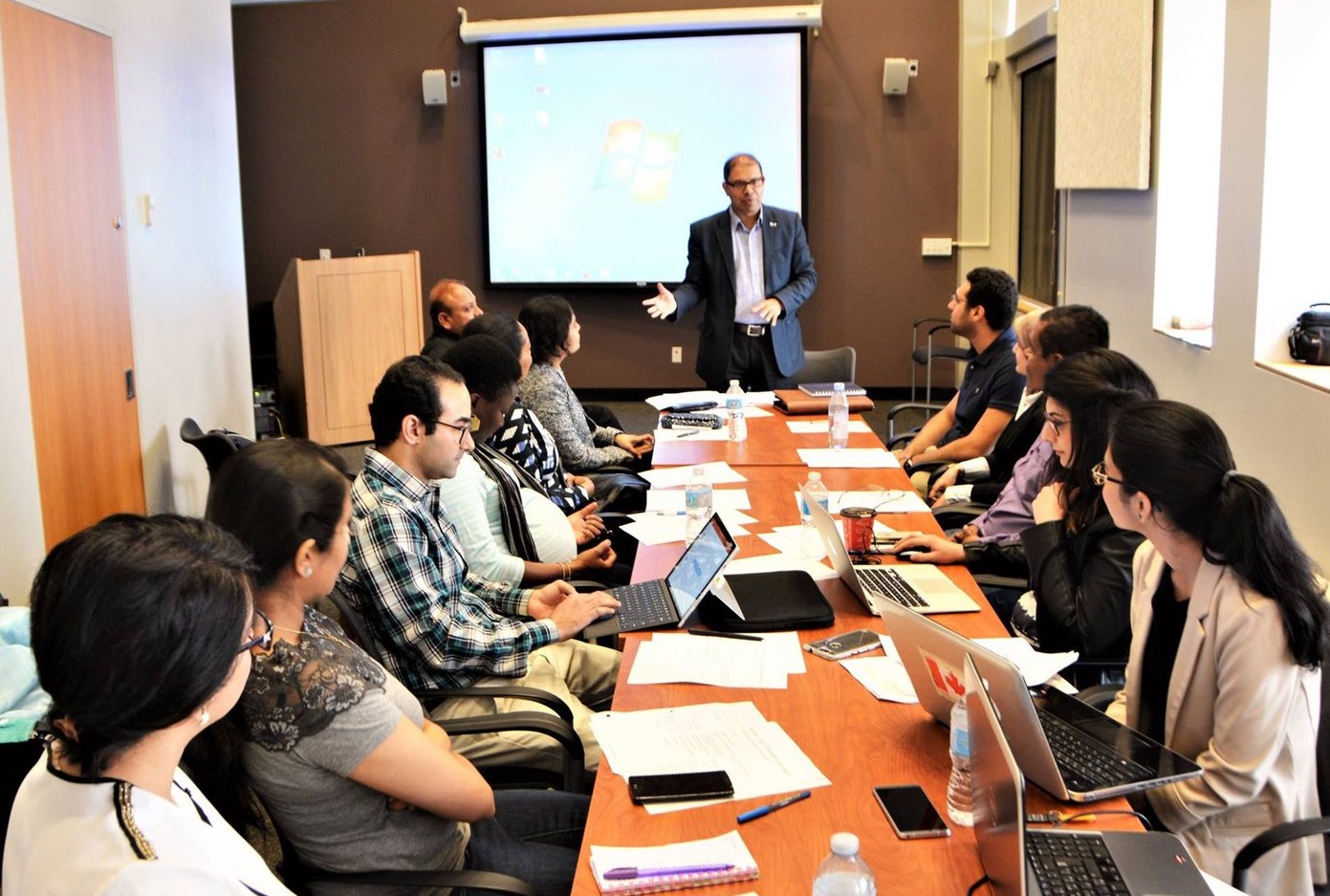Internationally Trained Medical Doctors Sidelined in Canada

Dr Shafi Bhuiyan is pictured here with a team of ITMDs. Foreign-trained doctors are underutilized in Canada despite shortages of trained personnel.
Toronto, Canada, Aug 20 2021 (IPS) - Canada is ranked number one out of 78 countries globally, with the highest marks in social purpose indicators, emphasizing human rights, social justice, and racial equity commitment, according to a recent U.S. News & World Report survey.
The country follows the Equity, Diversity, and Inclusion (EDI) principles, incorporating them into research and workplace environments, and it acknowledges challenges vulnerable populations face. Adopting these principles in every aspect of people’s lives makes Canada one of the most attractive places for numerous immigrants worldwide, with more than 13 000 internationally trained medical doctors (ITMDs) calling Canada home.
Canada’s health care is based on social equity fundamentals, having universal health coverage for essential medical services free of charge. Nevertheless, in 2019, about 4.6 million Canadians claimed that they do not have regular medical practitioners to seek advice or help.
In 2020, the highest record of 10.5 weeks waiting time from a family physician referral to specialist consultation was documented, with additional 12.1 weeks interval before treatment was initiated.
The COVID-19 pandemic aggravated these issues resulting in about 16 million healthcare services backlogs in Ontario alone. These will need up to almost two years to be resolved.
At the same time, Canada possesses significantly underutilized skilled healthcare professional resources trained abroad. According to the survey conducted among recent ITMDs graduates, 35% have passed the required licensing exams, including Medical Council of Canada Qualifying Examination Part I (MCCQE1), the National Assessment Collaboration Objective Structured Clinical Examination (NAC OSCE). This means they are eligible to enter the residency.
Very few will secure a residency position. The residency quotes retrieved from the Canadian Resident Matching Service (CaRMS) website showed that only 325 out of 3,365 (less than 10 %) spots were available for international medical graduates (IMGs) for the first iteration of the 2021 matching process.
Out of 1,358 IMGs participants, 948 (almost 70%) were unmatched this year partly due to a lack of transparency and understanding of the process rules.
Not to mention the cost associated with licensing examination, the CaRMS application process is a significant financial burden and even a barrier in many cases for the newcomers. According to Statistics Canada report, 47% of foreign-educated health professionals are either unemployed or employed in non-health-related positions that required only a high school diploma.
Nevertheless, internationally trained medical doctors play a significant role in fighting the COVID-19 pandemic, supporting the vaccination clinics, working as contact tracing managers and mental health advisors.
Another issue that needs an urgent solution is physician wellbeing. A recent study in Vancouver showed that the burnout rate reaches 68% among doctors, with 63% feeling emotionally exhausted and 39% depersonalized. Moreover, 21% of them had resigned or have thoughts about leaving their career.
On top of that, the aging population required complex care, along with a growing diverse population of Canada, underserved racialized, and newcomers’ communities need a considerate strategy to encompass community-based, culturally sensitive approaches to health care.
The ITMDs is a culturally diverse group with rich experience in different fields of medicine and research. Thus, foreign-educated health care professionals are fit perfectly to engage underprivileged communities, promote health and disease prevention, and manage multiple health priorities. Hence, the integration of internationally trained health care professionals could be a turning point to solve the current and prospective issues.
Moreover, 80% of Canadians stated that they feel comfortable being cared for by doctors who obtained mainly their training outside Canada, with 83% claimed that it should be more action to ensure fairness and opportunities for IMGs to practice medicine.
The question is: Why are internationally trained medical doctors still sidelined? The action is for the government to bring Equity, Diversity, and Inclusion (EDI) principles into the Canadian health care system.
Thus, a clear roadmap to integrate internationally trained healthcare professionals is necessary to address all existing challenges and strengthen Canada’s health care system. A move considered to be highly beneficial for all stakeholders (patients, physicians, ITMDs, government).
Collaboration is vital to move forward and make the ‘no one left behind ‘strategy a reality.
- The authors are from Asia, the Middle East, Africa, and South American countries.
- The co-authors are: Drs Bhuiyan S, Krivova A, Orin M, Azam S., Shalaby Y, Tasnim N, Badran H, Al-Chetachi W, Radwan E, Tazrin T, Biswas M, Min K. S, Mehrotra M, Anuradha, Quintanilla E, Begum N, Adhikary I, Fatima N
- ADVERTISEMENTADVERTISEMENT


IPS Daily Report







